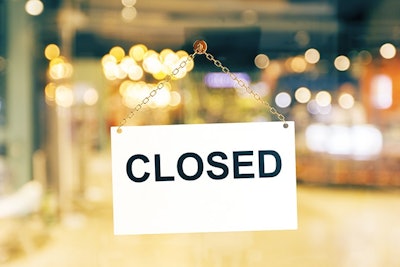
Michigan forced more than 70 unlicensed medical marijuana dispensaries to close after a state-issued Dec. 31 licensing deadline, severing many patients’ access to their medication.
The businesses had to apply for state licenses by Feb. 15, 2018 and have remained open under emergency rules that allowed them to temporarily operate while awaiting state licenses. However, permanent rules that took effect Dec. 1 did not include provisions for temporary operations, said Matthew Abel, attorney with Cannabis Counsel, P.L.C., a boutique marijuana law firm in Detroit, and executive director for Michigan NORML. Temporary operators faced an ultimatum—get licensed by Dec. 31 or shut down.
“They can proceed with the licensing process, assuming that [they began] the licensing process by last February,” Abel said.
Michigan’s new governor, Gretchen Whitmer, took office Jan. 1 and appointed a new director for the state’s Department of Licensing and Regulatory Affairs (LARA), the licensing and regulatory body for the state’s cannabis industry.
“It’s possible that they might put in place some new emergency rules, but I don’t see that happening really,” Abel said. “The state needs to expedite the consideration of the applications, … and maybe they should consider those temporary operators first—let them jump the queue, as it were, to be first in line. But other people who completed their applications earlier and who have never opened would object to that. We just need the state to be more aggressive in considering the applications, and frankly, the Republicans who were in charge, in my opinion, were slow-pedaling this the whole licensing process.”
The state will hold its next monthly licensing board meeting Jan. 16, where it will presumably issue more licenses, Abel added.
And although the licensing process will continue, patients who have been using dispensaries that have been shut down will likely revert to the illicit market for their medicine, he said. This presents obvious safety concerns, Abel added—under the new regulations, all products sold at licensed dispensaries must be lab tested, but products sold outside the regulated market are largely untested and unlabeled.
“The good part is that everything will be lab tested,” Abel said. “The bad part is there aren’t that many dispensaries licensed yet. I’m thinking the number’s around 50. So, there are more closed than open. It certainly wasn’t a smooth rollout.”
RELATED: See Where Medical Marijuana Shops Are Licensed in Michigan
And the state has largely been unapologetic, he added. “They’re saying, ‘Well, nobody has to drive more than 60 miles … to get to an open provisioning center,’ but that’s kind of too little, too late for a lot of people,” Abel said. “Yeah, there are some dispensaries, but a lot of them are going to have quite limited product availability for several months, it looks like, because they really should have licensed the growers first and then the processors and then the dispensaries; some of the dispensaries are owned by companies that are vertically integrated, where they’re not going to sell their product to any other dispensaries.”
As of October 2018, Michigan had about 300,000 registered medical marijuana patients on the books.
Patient access is further hampered by moratoriums in place by the state’s municipalities, Abel added—a little more than 100 out of the state’s 1,700 some municipalities allow any form of commercial cannabis businesses, which includes growers, processors and dispensaries.
“We’ll see what happens in the next couple of weeks, and at that board meeting later this month, but right now, it’s iffy,” Abel said. “Eventually, the supply will catch up with the demand, but I think it’ll probably take a whole year and by then, we’re going to have increased demand because at that point, the retail stores will be hopefully open. Right now, the only people who can go into a dispensary are medical patients. So, even though adult-use is legal, there’s no way to buy it."

























